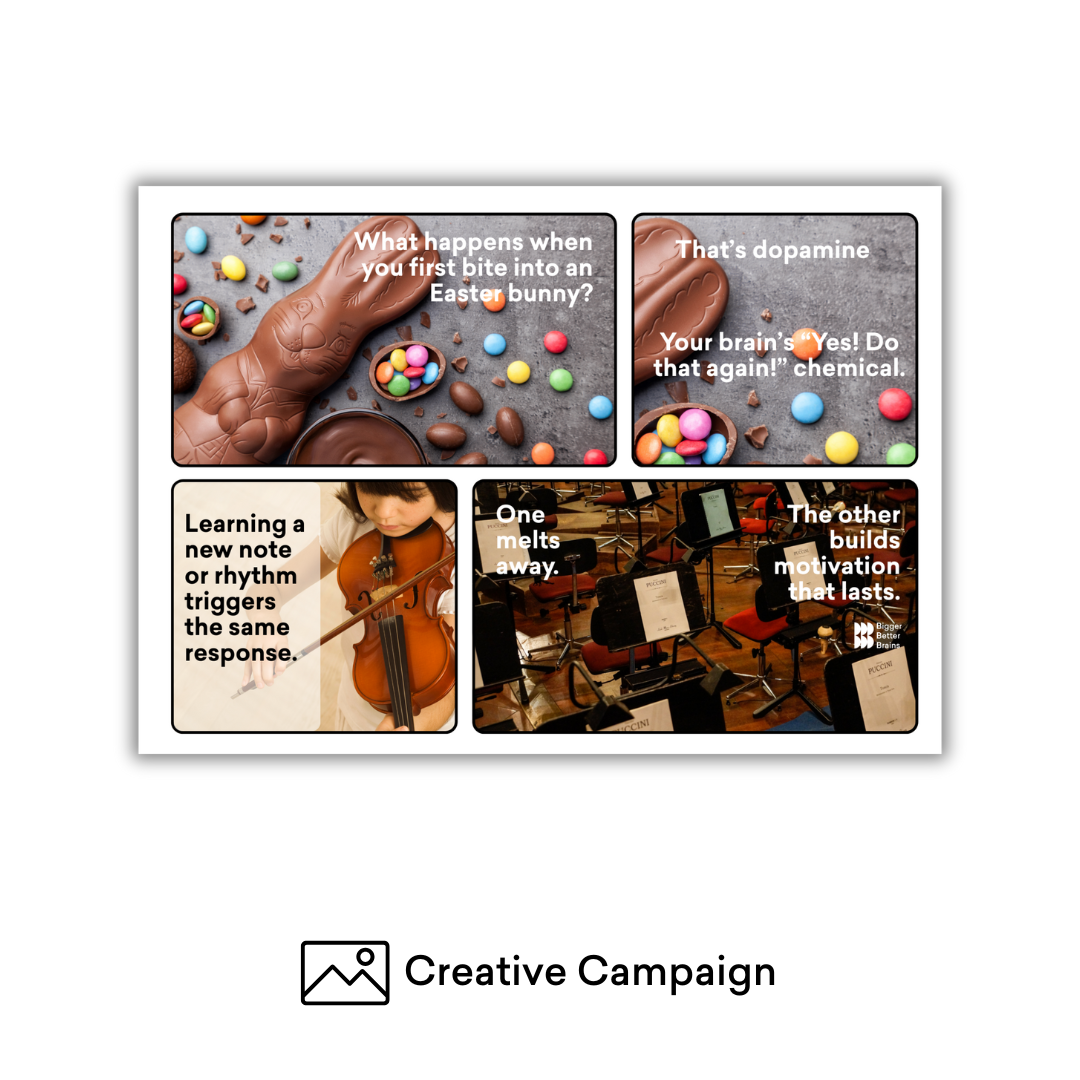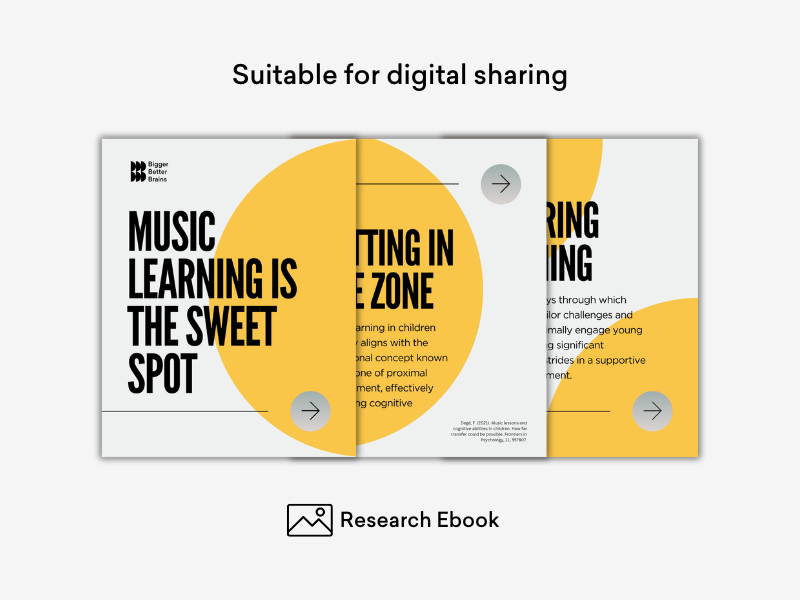Prosocial Behaviour - BBBX
BBBX stands for BBB Explained. These videos are designed to focus on a single area of learning that music learning can enhance. We want to help parents, students and staff to better understand the impacts of music learning on brain development, so feel free to share these short videos through your social media feeds and emails.
Learn how music learning helps to develop behaviours focused on helping and sharing with others.
Citations
Schellenberg, E. G., Corrigall, K. A., Dys, S. P., & Malti, T. (2015). Group music training and children’s prosocial skills.PLOS ONE, 10(10), e0141449.
Rickard, N. S., Appelman, P., James, R., Murphy, F., Gill, A., & Bambrick, C. (2013). Orchestrating life skills: The effect of increased school-based music classes on children’s social competence and self-esteem. International Journal of Music Education, 31(3), 292–309.
Welch, G. F., Himonides, E., Saunders, J., Papageorgi, I., & Sarazin, M. (2014). Singing and social inclusion. Frontiers in Psychology, 5, 803.
Hallam, S. (2010). The power of music: Its impact on the intellectual, social and personal development of children and young people. International Journal of Music Education, 28(3), 269–289.
Rabinowitch, T. C., Cross, I., & Burnard, P. (2013). Long-term musical group interaction has a positive influence on empathy in children. Psychology of Music, 41(4), 484–498.
Cirelli, L. K., Einarson, K., & Trainor, L. J. (2012). Bouncing babies to the beat: Music and helping behaviour in infancy. In 12th International Conference on Music Perception and Cognition, Thessaloniki, Greece.
Davidson, J. W., & Good, J. M. (2002). Social and musical co-ordination between members of a string quartet: An exploratory study. Psychology of music, 30(2), 186-201.














